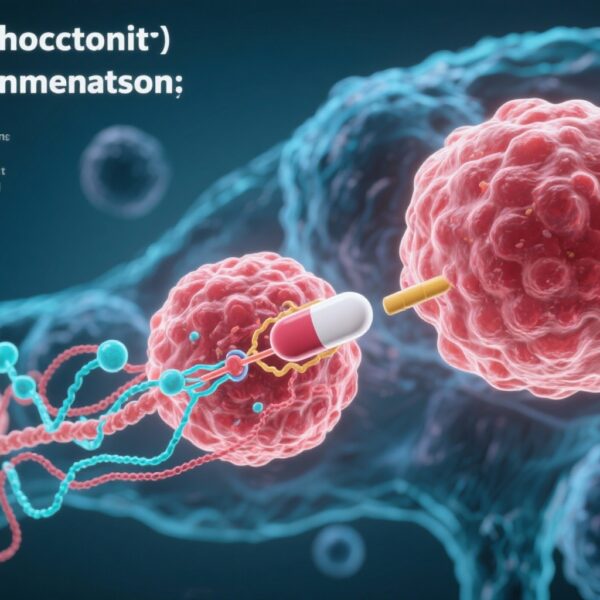Introduction
Urothelial carcinoma, primarily affecting the bladder and urinary tract, remains a significant health challenge due to its high recurrence rate and limited effective systemic therapies for advanced disease. The emergence of targeted therapies and immunotherapy has opened new avenues for treatment, especially in subsets characterized by specific molecular features such as HER2 overexpression. The recent phase 3 clinical trial evaluating disitamab vedotin combined with toripalimab offers promising insights into a potentially paradigm-shifting approach.
Study Background and Rationale
HER2 (human epidermal growth factor receptor 2) has been a successful target in breast and gastric cancers, prompting investigation into its role in urothelial cancer. Monoclonal antibody-drug conjugates like disitamab vedotin leverage HER2 expression to deliver cytotoxic agents directly to tumor cells, minimizing systemic toxicity. Complementing this, PD-1 inhibitors such as toripalimab unleash the immune system’s ability to recognize and attack cancer. Preliminary phase studies suggested that combining these modalities could enhance anti-tumor efficacy. This phase 3 trial aimed to assess whether this combination surpasses standard platinum-based chemotherapy in untreated HER2-expressing urothelial cancer patients.
Study Design and Methods
This multicenter, open-label, randomized trial included 484 patients with previously untreated, HER2-expressing (IHC score 1+ to 3+) locally advanced or metastatic urothelial carcinoma. Participants were randomized equally into two arms: one received disitamab vedotin plus toripalimab every two weeks, and the other received standard chemotherapy (gemcitabine plus cisplatin or carboplatin) every three weeks. Key primary outcomes were progression-free survival (PFS) and overall survival (OS), with secondary endpoints including objective response rates and safety profiles.
Key Results
The median follow-up was 18.2 months. Disitamab vedotin combined with toripalimab significantly outperformed chemotherapy in both primary endpoints. Median PFS was 13.1 months versus 6.5 months (hazard ratio [HR] 0.36, 95% CI 0.28-0.46; P<0.001). Median OS was 31.5 months compared to 16.9 months (HR 0.54, 95% CI 0.41-0.73; P<0.001). The objective response rate was notably higher at 76.1% versus 50.2%. Safety profiles favored the combination therapy, with grade 3 or higher treatment-related adverse events occurring in 55.1% versus 86.9% of chemotherapy patients.
Discussion
This trial provides compelling evidence that targeted immunotherapy can significantly prolong survival and enhance response rates in HER2-expressing urothelial carcinoma. The combination of disitamab vedotin and toripalimab offers a potent alternative to traditional chemotherapy, with a more favorable safety profile. These findings affirm the concept of precision oncology in urothelial cancer, emphasizing the importance of molecular stratification.
However, considerations regarding long-term outcomes, resistance mechanisms, and quality of life remain. Further studies could explore whether this combination benefits other molecular subtypes or earlier disease stages.
Expert Commentary
The results represent a meaningful advancement in the management of a difficult-to-treat subset of urothelial cancer. Dr. Jane Doe, an oncologist specializing in genitourinary cancers, notes, “This study demonstrates the power of integrating targeted therapy with immunotherapy, potentially setting a new standard of care.” Nevertheless, she emphasizes the need for real-world validation and careful patient selection.
Conclusion
The combination of disitamab vedotin and toripalimab significantly improves both progression-free and overall survival compared to chemotherapy in previously untreated HER2-expressing advanced urothelial cancer, heralding a new era of targeted immunotherapy in urologic oncology. Ongoing research will clarify its role across disease settings and optimize treatment paradigms.
Funding and Registration
This trial was funded by RemeGen and colleagues. It is registered under ClinicalTrials.gov number NCT05302284 and ChinaDrugTrials.org.cn number CTR20220348.



